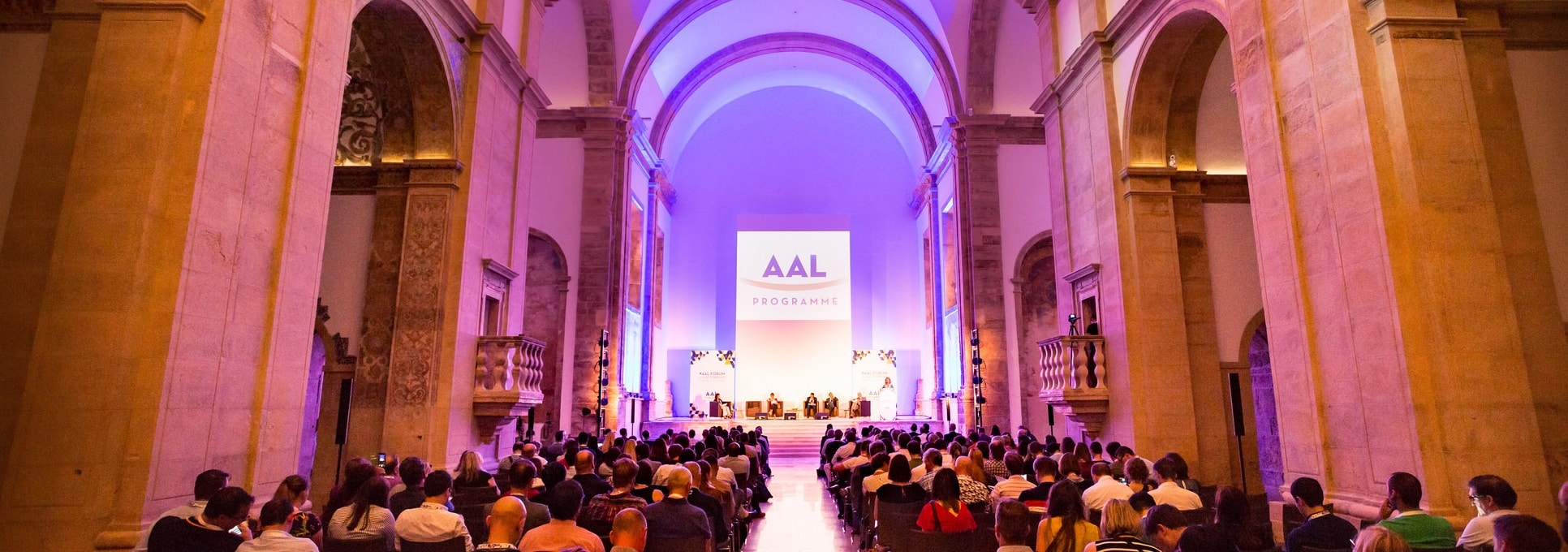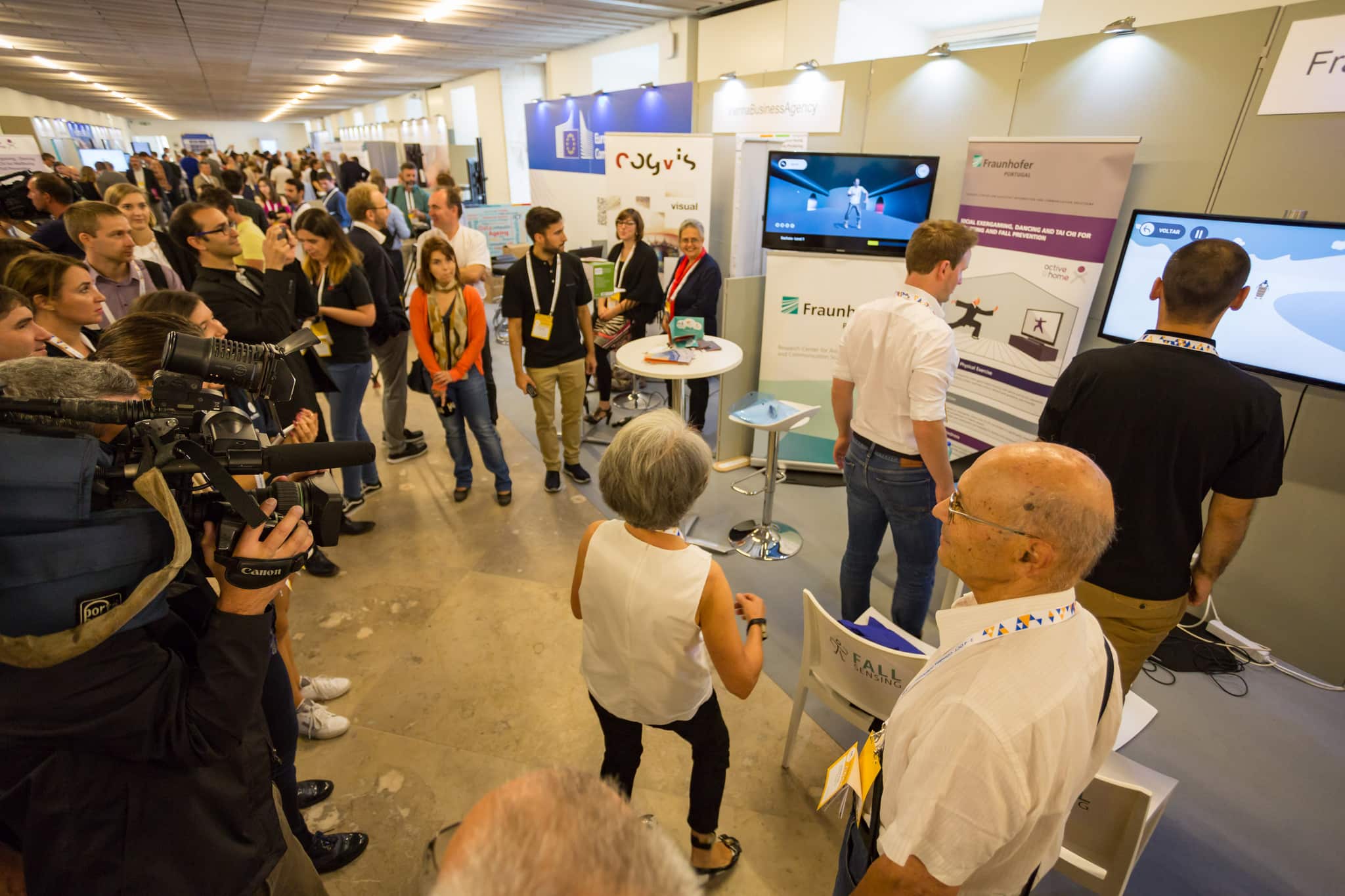From 2nd to 4th October 2017, almost 800 people gathered in the beautiful Coimbra, Portugal to exchange over the possibilities offered by technologies to support daily living as people age. AGE members and staff were part of the crew to recall the benefits of user involvement and the risks related to the development of stigmatizing solutions instead of mainstreaming accessibility.
The AAL Forum is organised every year by the European Programme funding innovation projects in the area of “active and assisted living” (AAL). This year’s edition was dedicated to bridging the gap between technology and active ageing. AGE members and staff took part in three workshops as representatives of older persons:
-
The workshop “Bridges between Europe – Integrating health and social care towards innovation” was attended by Javier Ganzarain, staff member of AGE, who draw upon various project experiences to address challenges related to participation, conditions for successful cooperation, exchange and transferability of cases and co-creation with older persons. User involvement is necessary to develop a true market, with available, accessible and affordable solutions. This is why age-friendly environments are key to AGE that promotes the Silver Economy in a broad perspective.
-
The workshop “Voice to the users: is AAL already in your lives?” saw Fernando Martins from APRe!, one of AGE Portuguese members and Liz Mestheneos, former AGE President, remind the importance of adapting existing properties as most older people live in their own homes – yet without using stigmatising solutions: “we do not want to design for older people, we need to design for everybody!” claimed Liz Mestheneos. An executive summary of this workshop is accessible here.
-
The workshop “Changing mindsets: new approaches to AAL” had a wider scope as it aimed at addressing the approach of AAL consortia to the notion of active and healthy ageing. The speakers, among which Estelle Huchet, staff member of AGE, made the workshop participants reflect on the concepts of age-friendliness, robotics, data protection and co-creation. More information here.
Overall, the Forum addressed several challenges around the digitalisation of our daily living. This year, 120 older adults from the Coimbra region were invited to come and assessed the products and solutions on display in the exhibition area, providing direct feedback to researchers. The plenary sessions were the occasion to recall the importance to focus on people’s needs first before developing a technology in partnership with the future users. In the same vein, this year’s AAL Forum underlined the need to align innovation funding with European, national and local policies for active and healthy ageing and to develop new business models for a market uptake of AAL solutions.
The recently published mid-term evaluation of the AAL Programme again echoed AGE requests to further engage end-users into the development of new solutions for assisted living. This should be supported by appropriate funding for researchers and innovators to be granted the necessary resources to genuinely engage older people to ensure the relevance and acceptance of new solutions.
Yet these technological innovations should never prevent policy-makers, designers, manufacturers and service providers to first and foremost adopt design-for-all approaches that would make environments accessible to all regardless of age or capabilities. If business cases are missing for assistive solutions to reach the market, it is less the case for user-centered designed products and services who reach more people as they get more accessible and accepted.
Read the AAL Forum 2017 report here
View all AAL Forum 2017 photos here
© all photos in this article are from the AAL Forum – originals: RLP_9180 and RLP_9740








